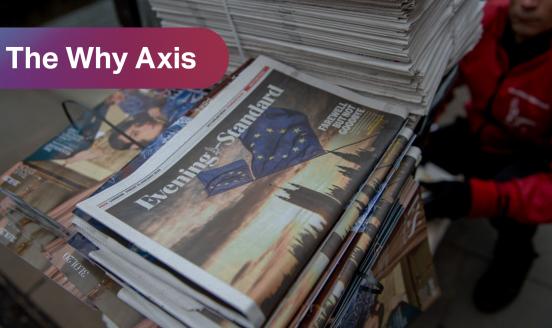Some Progress in the Banking Reform Debate
The Independent Commission on Banking, set up last year by the newly elected UK government and chaired by Oxford economist John Vickers, published its much-awaited interim report on reform options for British banking on April 11. The policy proposals, to be confirmed in a final report in September, are a significant milestone not only for the UK, but beyond it for European and global banking reform.
Much of the comment has concentrated on whether the recommendations are too timid. The Vickers Commission wants to preserve UK competitiveness. It did not suggest radical moves such as, say, a break-up of UK-based banks or dramatically higher capital requirements. However, this does not impair the report’s value. The big banks’ political leverage is an undeniable impediment to financial reform. But equally important is the generally prevailing lack of analytical clarity on what should be done, independently of this constraint. On this count, the Vickers Commission makes two important contributions.
First, the report makes the clearest attempt to date to introduce some form of regulatory separation between domestic and international financial services. Wholesale and investment banking mostly consists of tradable services whose provision can easily be moved from one country to another while still serving the same clients, primarily large investors and large companies. This makes them fiendishly difficult to regulate in a single jurisdiction. By contrast, retail banking is essentially non-tradable: most households or small businesses will not go abroad to open a bank account or seek a loan. By differentiating between the two, the report introduces a credible framework for regulating retail activities in a UK-only context, while leaving internationally tradable financial services to the international negotiations, including ongoing ones at the Financial Stability Board, where they belong. No doubt setting a workable boundary between retail and wholesale operations within the same financial group will be a big practical challenge, not unlike the difficulties surrounding the US implementation of the “Volcker rule” prohibiting proprietary trading in deposit-taking institutions. But the report is probably right to see it as manageable.
The report avoids the flawed conventional wisdom that paints retail banking as a regulated “utility” function and investment banking as a deregulated “casino”: in reality, both segments are vulnerable to misguided risk-taking and relevant to systemic risk analysis (think Northern Rock for retail, and Lehman for wholesale). Both must be subject to adequate regulation. But corresponding regulatory frameworks can and should be differentiated. The core mistake of UK regulators before the crisis was to neglect this distinction: the decision to apply a supervisory “light touch” to the wholesale activities of the City of London was indefensibly extended to the oversight of large British retail banks, such as Northern Rock, Halifax Bank of Scotland and Royal Bank of Scotland, with disastrous results. By contrast, competing international financial centers such as Hong Kong, Singapore, and Switzerland (in spite of the problems at UBS) appear to have done a better job of applying conservative prudential norms to domestic retail banks, while making themselves attractive to internationally mobile wholesale financial intermediaries, at least in the decade preceding the crisis. The reason why this did not happen in London may be a form of financial mercantilism: the UK authorities liked the prospect of big domestic banks such as RBS becoming global champions, which encouraged complacency. In any case, the Vickers proposals could prove successful at correcting this imbalance.
The second important contribution is the way the report positions competition policy as a core component of banking reform – perhaps unsurprisingly, John Vickers being himself a former competition regulator. For a number of reasons, financial supervisors often have a bias towards concentrated financial systems and tend to downplay the potential role of competition in ensuring market discipline and financial stability. But more competition is an indispensable response to the challenge of too-big-to-fail financial firms. The interim report logically focuses its remarks in this area on the UK context and retail banking. An adequate cross-border competition policy framework, though politically difficult to create, would be equally vital to the proper regulation of wholesale and investment banking at international level.
The interim report is centered on the UK, but has broader relevance for the European Union. At first glance, the ring-fencing of UK retail operations appears to contradict the vision of a single EU market for financial services. But because the financial sector requires effective regulation to function well, this vision requires adequate institutions to be credible, i.e. centralized authorities for the supervision and, in case of failure, resolution of banks with a pan-European reach. As long as these do not exist – and the newly created European Banking Authority still falls well short – the single banking market must remain a fiction. By highlighting this contradiction, the Vickers Commission also provides a valuable public service to the EU.



